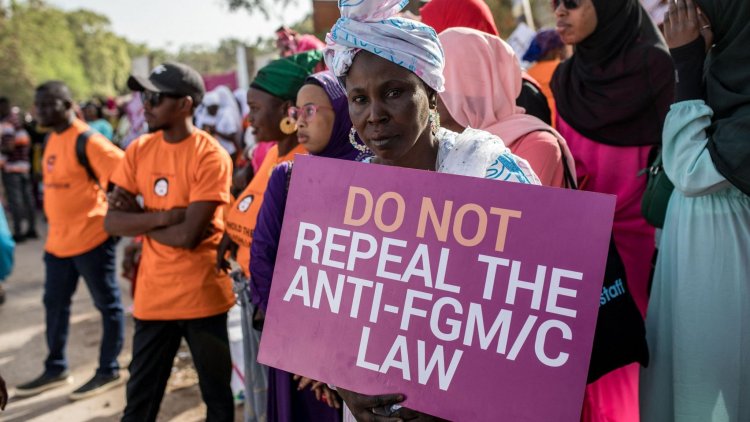Gambia Rejects Bill to End FGM Ban

Gambia's parliament rejected a bill that would have ended a ban on female genital mutilation, parliament's speaker said.
The bill had sparked a public debate around the practice in the Muslim-majority country.
The lawmaker who took the proposal to parliament, Almaneh Gibba, said he was upholding religion, culture and tradition.
But many Islamic scholars dispute his arguments.
The World Health Organization says FGM has no health benefits and can lead to excessive bleeding, shock, psychological problems and even death.
And anti-FGM campaigners say the 2015 law banning the practise in Gambia has been poorly enforced, which the government denies.
The bill had passed a second reading in March with only five out of 53 lawmakers voting against it.
That had raised concerns among rights advocates that Gambia would become the first country in the world to reverse a ban on FGM.
But after holding weeks of public hearings, parliament's health and gender affairs committees presented a joint report on July 8 recommending that Gambia maintain the ban.
A majority of lawmakers adopted that report.
Political analysts said they may have been swayed by testimonies from doctors and survivors about FGM's harmful consequences.
Parliament voted again ahead of a third and final reading scheduled for later this month.
Around 30 lawmakers voted against each clause, prompting the speaker, Fabakary Tombong Jatta, to stop the bill moving forward to the final reading.
Jatta said it was a "futile exercise" to allow the bill to proceed.
The 2015 ban introduced fines and jail terms of up to three years for perpetrators, and life sentences if a girl died as a result.
FGM is banned in more than 70 countries globally but continues to be practised particularly in Muslim-majority countries, such as The Gambia.















